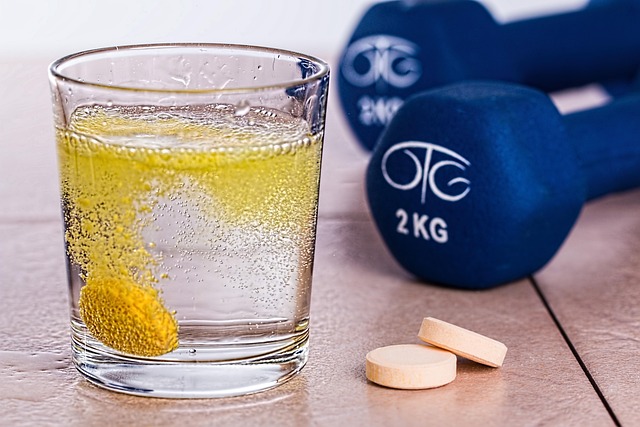Daily dietary choices that support liver function
Small, consistent dietary choices can help maintain healthy liver function over time. Emphasizing wholefoods, hydration, lean protein, and a range of vitamins and minerals creates a foundation that supports metabolism, detoxification pathways, and overall digestive balance.

Maintaining liver health is largely influenced by daily food choices that support its metabolic and detoxification roles. A balanced approach that emphasizes wholefoods, adequate hydration, fiber, and structured mealplanning supplies the nutrients the liver needs to process fats, store energy, and help regulate inflammation. This article outlines practical food-focused strategies to support liver function without making medical claims or promises.
This article is for informational purposes only and should not be considered medical advice. Please consult a qualified healthcare professional for personalized guidance and treatment.
Nutrition and metabolism
Good liver support begins with balanced nutrition that supplies consistent energy and avoids excessive sugar or highly processed fats. Prioritize wholefoods—vegetables, fruits, whole grains, and moderate portions of leanprotein—to stabilize blood glucose and reduce metabolic strain on the liver. Regular mealplanning helps avoid long fasting periods followed by large meals, which can stress metabolic pathways. A steady intake of complex carbohydrates and proteins supports glycogen storage and healthy metabolism while limiting rapid fat accumulation in liver cells.
Antioxidants, polyphenols, and wholefoods
Antioxidants and polyphenols in wholefoods help the liver by neutralizing reactive compounds and supporting repair processes. Berries, green tea, coffee in moderation, nuts, and colorful vegetables are good sources of polyphenols and antioxidants. Including a variety of these foods across meals increases the range of protective compounds available to the liver. Focus on wholefoods rather than supplements where possible, since wholefood matrices often deliver a mix of nutrients and polyphenols that work together.
Cruciferous vegetables and sulforaphane
Cruciferous vegetables—such as broccoli, Brussels sprouts, cabbage, and kale—contain sulfur-rich compounds like sulforaphane that have been associated with activation of cellular detoxification pathways. Regular inclusion of cruciferous vegetables provides fiber and phytonutrients that may enhance the liver’s ability to process certain byproducts. Light cooking techniques preserve these compounds while improving digestibility; raw and lightly steamed preparations are common ways to incorporate cruciferous choices into meals.
Fiber, guthealth, and mealplanning
Dietary fiber supports guthealth and helps regulate the enterohepatic circulation of bile acids and toxins. Soluble fiber from oats, legumes, fruits, and vegetables binds bile acids and can moderately influence cholesterol metabolism, while insoluble fiber supports regular bowel movements. A gut-friendly pattern—rich in prebiotic fibers and fermented foods as tolerated—can reduce the burden on the liver by improving microbial balance. Thoughtful mealplanning that spaces fiber-rich meals through the day helps maintain steady nutrient flow and supports digestive function.
Omega-3, lean protein, vitamins, and minerals
Omega3 fatty acids from fatty fish, flaxseed, or walnuts can favorably influence lipid metabolism and inflammation, supporting liver health as part of an overall dietary pattern. Choose leanprotein sources—fish, poultry, legumes, and low-fat dairy—to supply amino acids needed for repair and detoxification. Ensure adequate intake of key vitamins and minerals (for example B vitamins, vitamin D, vitamin E, magnesium, and zinc) through varied foods; these micronutrients act as cofactors in metabolic reactions. When specific deficiencies are suspected, testing and professional guidance are recommended rather than routine high-dose supplementation.
Hydration and day-to-day choices
Proper hydration supports circulation and the transport of nutrients and metabolic byproducts that the liver processes. Water throughout the day, combined with hydrating foods like cucumbers and melons, contributes to overall fluid balance. Limit excessive alcohol intake, minimize highly processed foods and added sugars, and replace refined snacks with wholefood alternatives to reduce metabolic load. Small, sustainable changes—such as swapping sugary drinks for water, adding a daily serving of vegetables, and including a source of leanprotein at meals—are practical ways to keep liver-supportive habits consistent.
Incorporating these elements into a regular eating pattern—focused on wholefoods, antioxidants and polyphenols, cruciferous vegetables with sulforaphane, adequate fiber for guthealth, omega3 and leanprotein, plus vitamins, minerals, and hydration—creates a nutrient profile that aligns with healthy liver metabolism. Individual needs vary; a registered dietitian or medical provider can tailor mealplanning and nutrient targets where specific health conditions exist. Small, steady adjustments to daily food choices are often more sustainable and supportive over time than dramatic short-term changes.




